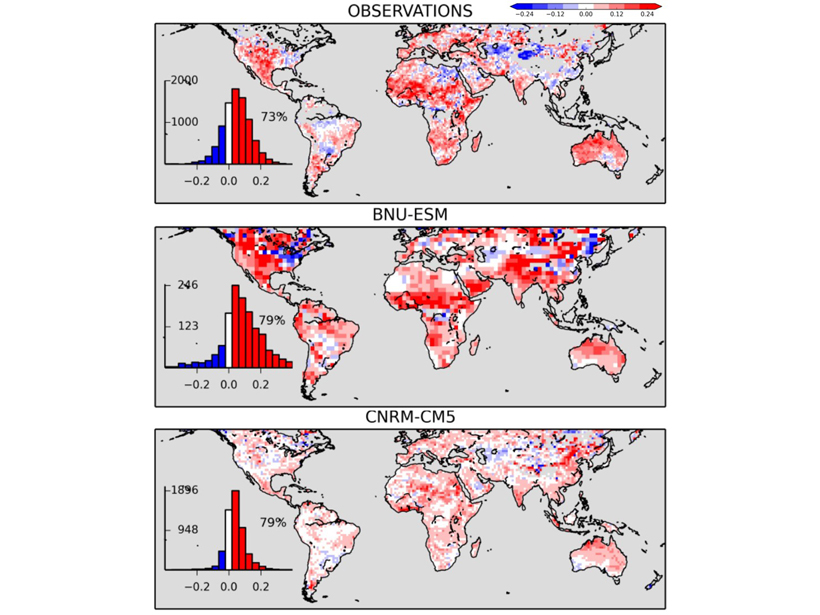Source: Geophysical Research Letters
The way that Earth System Models (ESMs) represent the linkage between soil moisture and evapotranspiration is still poorly captured by diagnostics in most models. Gallego-Elvira et al. [2019] apply a new method to extensive long-term satellite observations and reanalyze data of land-surface and air temperature across the globe. The study highlights world regions where ESMs capture the coupling well, such as in arid areas, and regions where models are unable to capture a realistic relationship between soil moisture and evapotranspiration, specifically, continental areas. The results are important for further model development, because soil moisture is known to be a strong contributor to temperature extremes. This research thus provides a useful platform for both global and regional climate models seeking to improve the description of land surface energy budgets.
Citation: Gallego‐Elvira, B., Taylor, C. M., Harris, P. P., & Ghent, D. [2019]. Evaluation of regional‐scale soil moisture‐surface flux dynamics in Earth system models based on satellite observations of land surface temperature. Geophysical Research Letters, 46. https://doi.org/10.1029/2019GL082962
—Valeriy Ivanov, Editor, Geophysical Research Letters
Text © 2019. The authors. CC BY-NC-ND 3.0
Except where otherwise noted, images are subject to copyright. Any reuse without express permission from the copyright owner is prohibited.

